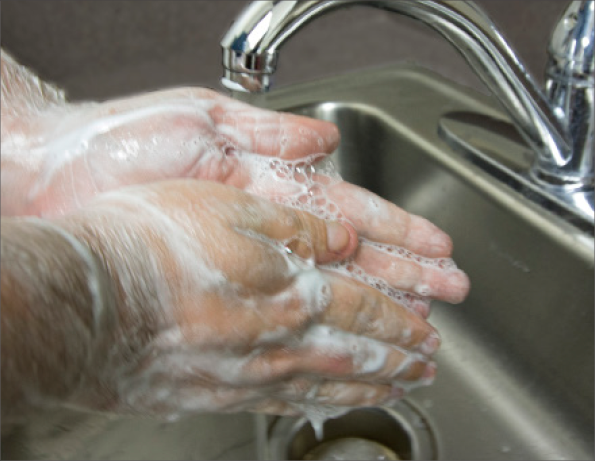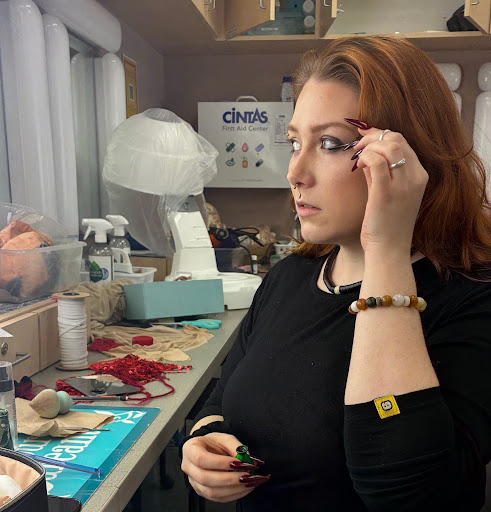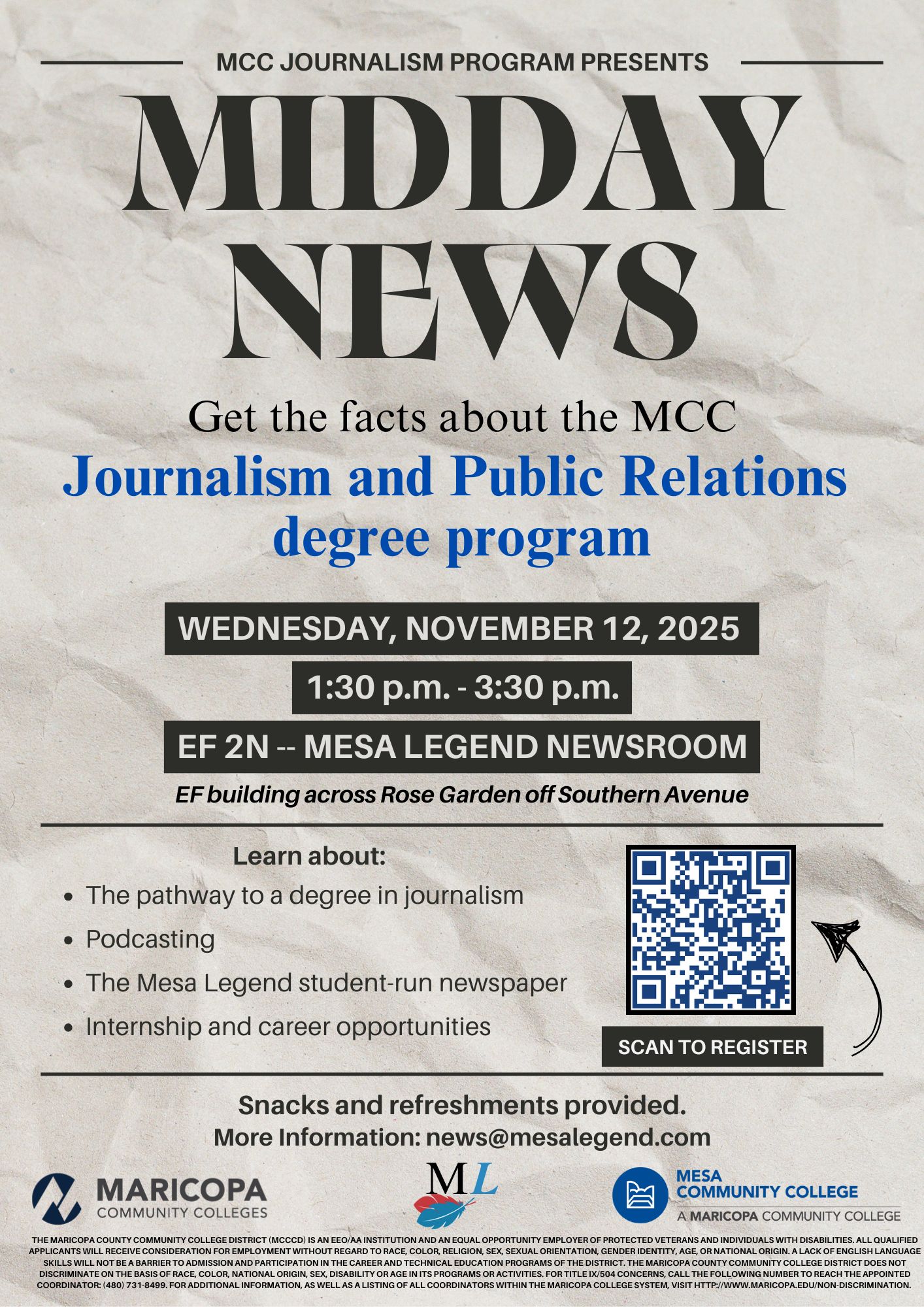FDA bans antibacterial soap due to ineffectiveness
Kian Hagerman
Mesa Legend
 The Food and Drug Administration (FDA) banned the active ingredients in over-the-counter antibacterial soaps, according to a press release. The Sep. 2 press release cited a lack of demonstrable greater potency in preventing the spread of illness or infection over traditional soaps. “I think it’s a good move,” said Technical Specialist in Infectious Diseases Michael Santa Cruz. “It probably didn’t go far enough.” Santa Cruz pointed to a long history of diseases becoming more resilient in reaction to harmful chemicals as a huge factor in the ban “Throughout history, you can find an example, where if they are exposed to low doses they will always become resistant.”Santa Cruz added that the contamination of the environment with ubiquitous antibacterial use, is exactly how such low doses that bacteria can survive are introduced to said bacteria.
The Food and Drug Administration (FDA) banned the active ingredients in over-the-counter antibacterial soaps, according to a press release. The Sep. 2 press release cited a lack of demonstrable greater potency in preventing the spread of illness or infection over traditional soaps. “I think it’s a good move,” said Technical Specialist in Infectious Diseases Michael Santa Cruz. “It probably didn’t go far enough.” Santa Cruz pointed to a long history of diseases becoming more resilient in reaction to harmful chemicals as a huge factor in the ban “Throughout history, you can find an example, where if they are exposed to low doses they will always become resistant.”Santa Cruz added that the contamination of the environment with ubiquitous antibacterial use, is exactly how such low doses that bacteria can survive are introduced to said bacteria.

Tania Ritko/Mesa Legend
“They get diluted and contaminate the environment,” Santa Cruz said. A study published in the Oxford Journal Clinical Infectious Diseases came to a similar determination and indicated that the hazards of antibacterial use warranted evaluation by government regulators.The study concluded that triclosan, one of the ingredients banned by the FDA, not only lacked increased health benefits over regular soap but that the data also showed that there is a risk of selecting for drug resistance. Bacteria in numerous lab studies had shown an adaptation to and resistance to antibiotics after being introduced to triclosan. “If it’s more of a way to take the risk thing, I guess I could see it,” said MCC student Blake Vital regarding the ban. Vital expanded on this sentiment, saying that if we are going to have a ban on soap, he feels that we should also address other consumable goods available to the public that might be harmful.
“If we’re gonna be informing the public about, basically, why take the risk with soap and water … you know that is just going to be reduced down to a soundbite that says ‘antibacterial soap sucks,’” Vital said “Then they’re gonna go ‘but we don’t really know about GMOs though.’ If I’m gonna have the FDA turn up the volume, it is not gonna be about soap; it’s gonna be about food.” The FDA had issued a rule in 2013 requiring manufacturers of antibacterial products to render additional data regarding concerns about safety and usefulness, which had not happened as of the Sep. 2 press release for the 19 chemicals that were banned. According to the FDA, either the information was not submitted or was insufficient necessary to classify the ingredients as safe and effective.
MCC student James was asked if he had heard about the ban, and replied that he had not. LePier felt that keeping such products on the market, if it had been proven there was no appreciable enhancement over regular soap, was pointless.
“If it didn’t clean your hands anymore what’s the point of even putting it on the market?” LePier asked. “That’s the point of it, to clean your hands.” When asked if he felt that the FDA had effectively gotten the message out to consumers that antibacterial products might be ineffective, or that they were banned LePier felt there was still need to spread the word.“I think that they should probably mention it more, because I haven’t heard about it yet,” LePier said. Manufacturers will be given a year to comply with the new mandate, which will not impact hand sanitizers, wipes, or antibacterial products that are used in health care settings according to the FDA.
Santa Cruz said his concern was for the cumulative effects of antibacterial product use; that the super bugs of the future will be a direct result of overuse. “Right now we are on a precipice,” Santa Cruz said.
Santa Cruz did think there were some situations where the general populace should have access to antibacterial products, but that said access should be controlled by a medical professional. “It probably should be by prescription or under a doctor’s care,” Santa Cruz said regarding how access to antibacterial products should be controlled. “I can see where people who have something like chronic wounds would have a need.” It is suggested that consumers use soap and water by the Centers for Disease Control and Prevention, as it does prevent the spread of disease; alcohol-based hand sanitizer can be substituted if clean soap and water is unavailable.









